Your cart is currently empty!
Tag: Data Center Compliance
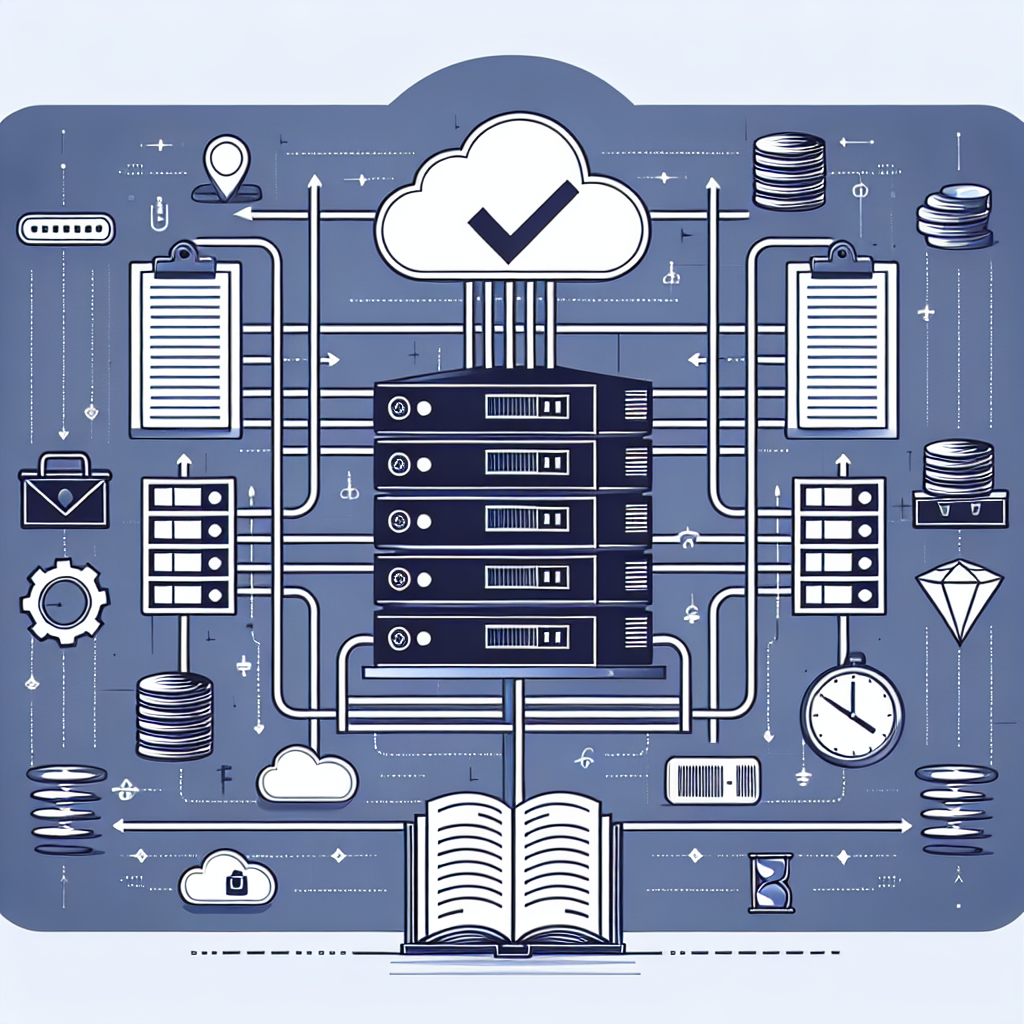
How Data Center Compliance Impacts Cloud Computing and Data Storage
In today’s digital age, data has become one of the most valuable assets for businesses. With the increasing amount of data being generated and stored, the need for data centers to securely store and process this information has become crucial. However, with this increasing reliance on data centers comes the need for strict compliance regulations to ensure that data is being handled and stored in a secure and compliant manner.Data center compliance regulations, such as the Health Insurance Portability and Accountability Act (HIPAA), the Payment Card Industry Data Security Standard (PCI DSS), and the General Data Protection Regulation (GDPR), are put in place to protect sensitive information and ensure that data is being handled in a secure and compliant manner. These regulations require data centers to implement strict security measures, such as encryption, firewalls, and access controls, to protect data from unauthorized access or breaches.
When it comes to cloud computing and data storage, data center compliance plays a crucial role in ensuring that data is being stored and processed in a secure and compliant manner. Cloud computing allows businesses to store and access data remotely, making it easier for organizations to scale their operations and access data from anywhere in the world. However, with this convenience comes the need to ensure that data is being stored and processed in compliance with data center regulations.
Data center compliance impacts cloud computing in several ways. Firstly, data centers that are compliant with regulations are more likely to have robust security measures in place to protect data from unauthorized access or breaches. This provides businesses with the peace of mind that their data is being stored and processed securely.
Secondly, data center compliance regulations also require data centers to regularly audit and monitor their security measures to ensure that data is being handled in a compliant manner. This helps to identify any potential security risks or vulnerabilities and address them before they become a problem.
Lastly, data center compliance regulations also impact data storage in the cloud by requiring data centers to implement data retention policies and procedures to ensure that data is being stored and retained in compliance with regulations. This helps businesses to ensure that they are not storing data for longer than necessary and that they are able to securely delete data when it is no longer needed.
In conclusion, data center compliance regulations play a crucial role in ensuring that data is being stored and processed in a secure and compliant manner. When it comes to cloud computing and data storage, data center compliance impacts how data is stored, processed, and accessed, helping businesses to protect their sensitive information and comply with regulations. By ensuring that data centers are compliant with regulations, businesses can rest assured that their data is being handled in a secure and compliant manner.

Compliance Challenges and Solutions for Data Centers in the Digital Age
In today’s digital age, data centers play a crucial role in storing and managing vast amounts of information for businesses and organizations. With the increasing reliance on technology and data-driven decision-making, data center compliance has become a top priority for companies to ensure the security and integrity of their data.Compliance challenges for data centers can vary depending on the industry and regulatory requirements. Some of the common challenges include meeting data privacy regulations such as GDPR, ensuring data security against cyber threats, and maintaining high availability and reliability of services.
One of the key compliance challenges for data centers is ensuring data privacy and protection. With the increasing amount of personal data being stored and processed, data centers must adhere to strict regulations to protect sensitive information. This includes implementing robust security measures such as encryption, access controls, and regular security audits to prevent data breaches and unauthorized access.
Another compliance challenge for data centers is meeting industry-specific regulations such as HIPAA for healthcare organizations or PCI DSS for payment card data security. These regulations require data centers to implement specific security controls and protocols to protect sensitive data and ensure compliance with industry standards.
In addition to regulatory compliance, data centers also face challenges in maintaining high availability and reliability of services. Downtime can have a significant impact on business operations and can result in financial losses and reputational damage. Data centers must implement disaster recovery and business continuity plans to ensure that services are always available and that data is backed up and recoverable in the event of a system failure.
To address these compliance challenges, data centers can implement a range of solutions and best practices. This includes regularly updating security measures to protect against evolving cyber threats, conducting regular compliance audits to ensure adherence to regulations, and implementing robust data backup and recovery plans to minimize downtime and data loss.
Data centers can also leverage automation and AI technologies to enhance security and compliance efforts. Automated monitoring and alerting systems can help data centers detect and respond to security incidents in real-time, while AI-powered analytics can help identify potential security vulnerabilities and proactively address them before they become a threat.
Overall, compliance challenges for data centers in the digital age are complex and evolving. By implementing robust security measures, adhering to industry regulations, and leveraging technology solutions, data centers can ensure the security and integrity of their data while meeting compliance requirements.

The Role of Data Center Compliance in Ensuring Business Continuity and Resilience
In today’s digital age, data centers play a crucial role in ensuring the smooth operation of businesses. These facilities house and manage the critical infrastructure that supports an organization’s IT systems and applications. With the increasing reliance on technology, it has become essential for businesses to ensure the continuity and resilience of their operations, especially in the face of unforeseen events such as natural disasters, cyber attacks, or system failures.One of the key factors in maintaining business continuity and resilience is data center compliance. Compliance refers to the adherence to industry standards and regulations that govern the design, construction, and operation of data centers. These standards are put in place to ensure that data centers are built and maintained in a way that minimizes the risk of downtime and data loss.
Data center compliance encompasses a wide range of requirements, including physical security, environmental controls, power and cooling systems, and data protection measures. By following these standards, data centers can mitigate the risks of potential disruptions and ensure that critical business operations can continue uninterrupted.
Physical security is a critical aspect of data center compliance. Data centers house sensitive and valuable information, making them a potential target for theft or unauthorized access. Compliance standards dictate that data centers must have robust security measures in place, such as access controls, surveillance systems, and security personnel, to protect against physical threats.
Environmental controls are also essential for data center compliance. Data centers generate a significant amount of heat, which can damage equipment and lead to system failures. Compliance standards require data centers to have adequate cooling systems in place to maintain optimal operating temperatures and prevent overheating.
Power and cooling systems are another crucial component of data center compliance. Data centers rely on a constant and reliable power supply to keep operations running smoothly. Compliance standards mandate that data centers have backup power systems, such as generators or uninterruptible power supplies, to ensure continuity in the event of a power outage.
Data protection measures are equally important for ensuring business continuity and resilience. Compliance standards require data centers to implement robust backup and recovery processes to protect against data loss. By regularly backing up data and testing recovery procedures, data centers can minimize the impact of potential data breaches or system failures.
In conclusion, data center compliance plays a vital role in ensuring the continuity and resilience of business operations. By adhering to industry standards and regulations, data centers can minimize the risks of downtime and data loss, ultimately safeguarding the integrity and reliability of critical business systems. As businesses continue to rely on technology for their day-to-day operations, investing in data center compliance is essential for maintaining a strong and resilient infrastructure.
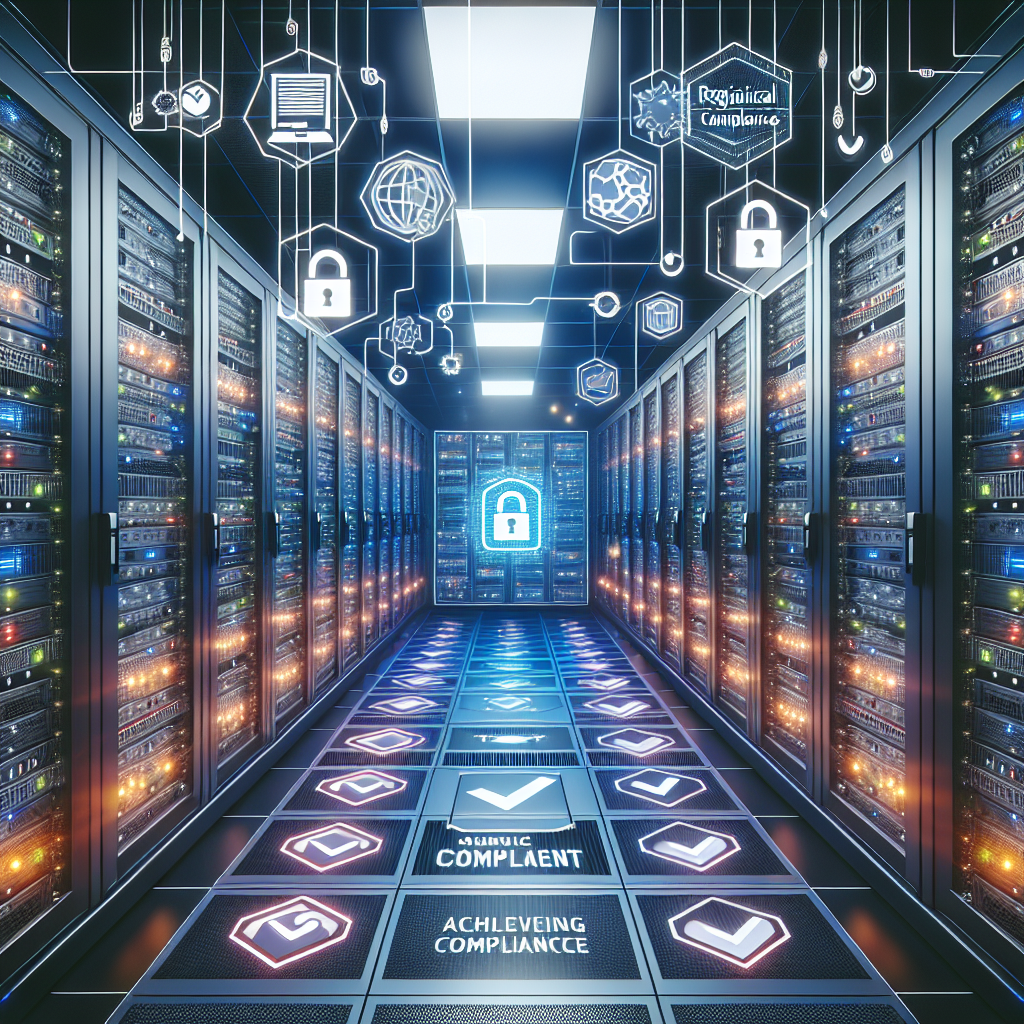
Best Practices for Achieving Data Center Compliance in Today’s Regulatory Landscape
In today’s increasingly complex regulatory landscape, data center compliance has become a top priority for organizations of all sizes. From GDPR to HIPAA to PCI DSS, there are a myriad of regulations that companies must adhere to in order to protect sensitive data and avoid costly fines.Achieving data center compliance requires a comprehensive approach that encompasses not only technical solutions, but also policy and procedural measures. By implementing best practices for data center compliance, organizations can ensure that their data is secure and their operations are in line with regulatory requirements.
One key best practice for achieving data center compliance is to conduct regular audits and assessments of your data center infrastructure. This includes assessing physical security measures, such as access controls and surveillance systems, as well as evaluating the effectiveness of data encryption and other technical safeguards. Regular audits can help identify vulnerabilities and ensure that your data center is meeting regulatory standards.
Another important best practice is to implement robust data governance policies and procedures. This includes defining data classification standards, establishing data retention policies, and implementing access controls to ensure that only authorized personnel have access to sensitive data. By establishing clear policies and procedures for data management, organizations can reduce the risk of data breaches and demonstrate compliance with regulatory requirements.
In addition to technical and policy measures, training and education are also essential for achieving data center compliance. Employees at all levels of the organization should receive training on data security best practices, including how to identify and report security incidents. By investing in employee training, organizations can create a culture of security awareness and ensure that everyone is aligned with compliance requirements.
Finally, it’s important to stay informed about changes in regulatory requirements and industry best practices. The regulatory landscape is constantly evolving, and organizations must stay up-to-date on new regulations and guidelines that may impact data center compliance. By staying informed and proactive, organizations can ensure that their data center operations remain compliant and secure.
In conclusion, achieving data center compliance in today’s regulatory landscape requires a multi-faceted approach that includes technical solutions, policy and procedural measures, training, and ongoing monitoring. By implementing best practices for data center compliance, organizations can protect sensitive data, reduce the risk of data breaches, and demonstrate their commitment to regulatory compliance.

Understanding the Importance of Data Center Compliance for Security and Privacy
Data centers are critical components of modern businesses, serving as the central hub for storing, processing, and managing vast amounts of data. With the increasing reliance on technology and the growing importance of data in decision-making, ensuring the security and privacy of this data has become paramount. One way to achieve this is through data center compliance.Data center compliance refers to adhering to a set of regulations, standards, and best practices that govern the handling of data within a data center environment. These regulations are designed to protect sensitive information, prevent data breaches, and ensure the confidentiality, integrity, and availability of data. Compliance requirements can vary depending on the industry, the type of data being stored, and the location of the data center.
One of the key reasons why data center compliance is important is to mitigate the risks associated with data breaches. Data breaches can have serious consequences for businesses, including financial loss, reputational damage, and legal repercussions. By implementing compliance measures, data centers can reduce the likelihood of a breach occurring and minimize the impact if one does occur.
Compliance also helps to build trust with customers and partners. In today’s digital age, consumers are increasingly concerned about the security and privacy of their personal information. By demonstrating compliance with industry regulations and standards, businesses can reassure their customers that their data is being handled in a secure and responsible manner.
Furthermore, data center compliance can also help businesses avoid costly fines and penalties. Many industries are subject to strict regulations governing the handling of data, such as the Health Insurance Portability and Accountability Act (HIPAA) for healthcare organizations or the General Data Protection Regulation (GDPR) for businesses operating in the European Union. Failure to comply with these regulations can result in hefty fines and legal action.
In addition to regulatory requirements, data center compliance also encompasses best practices for data security and privacy. This includes implementing robust cybersecurity measures, such as encryption, access controls, and regular security audits, as well as establishing policies and procedures for data handling and incident response.
Overall, understanding the importance of data center compliance for security and privacy is crucial for businesses operating in today’s data-driven world. By prioritizing compliance, businesses can protect their data, build trust with customers, and avoid costly penalties. Investing in compliance measures is not only a smart business decision but also a necessary step in safeguarding sensitive information and ensuring the long-term success of the organization.
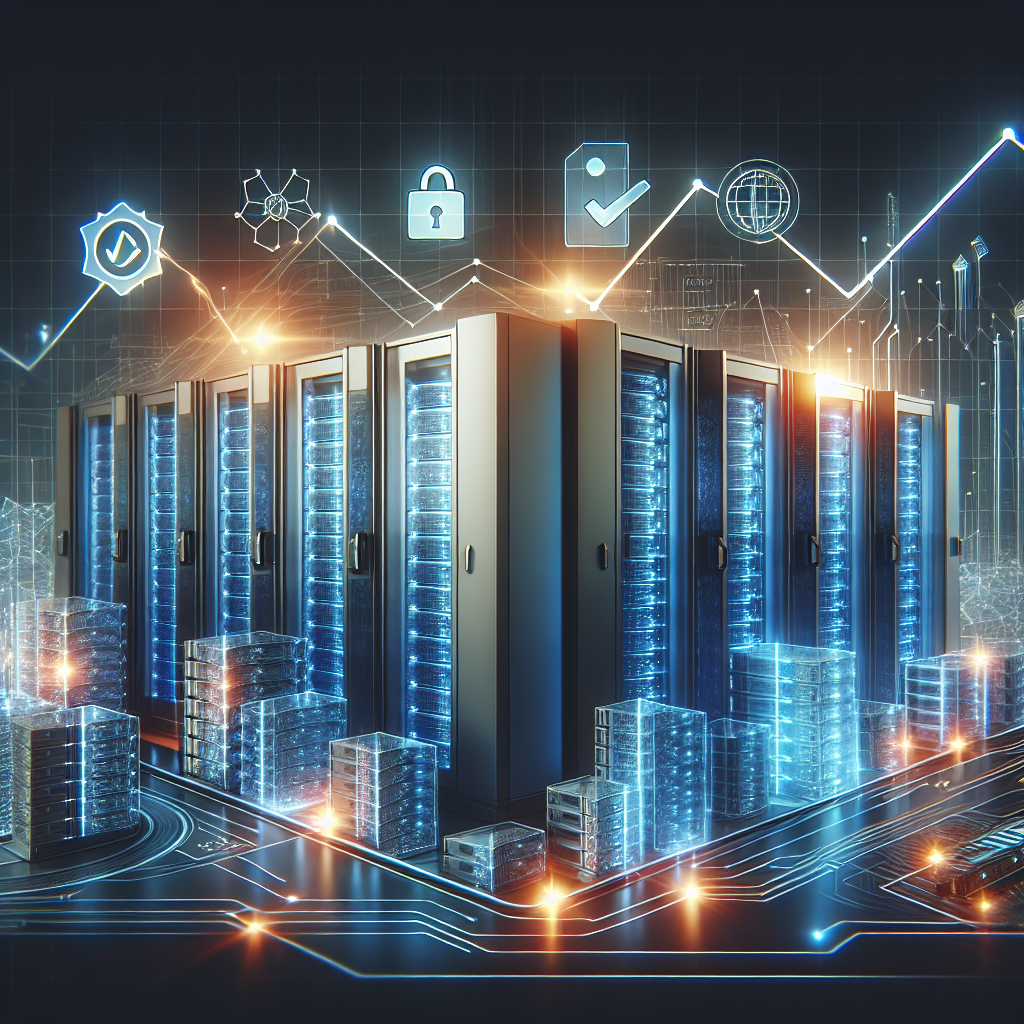
The Future of Data Center Compliance: Trends and Predictions for the Industry
As technology continues to advance at a rapid pace, the data center industry is facing increasing pressure to comply with regulatory requirements and ensure the security and privacy of data. With the rise of cloud computing, artificial intelligence, and the Internet of Things, data centers are becoming more complex and interconnected than ever before. As a result, compliance with regulations such as GDPR, HIPAA, and PCI DSS is becoming a top priority for data center operators.In the coming years, we can expect to see several trends and predictions shaping the future of data center compliance. One major trend is the increasing focus on data privacy and security. With the proliferation of data breaches and cyberattacks, regulators are cracking down on companies that fail to protect their customers’ sensitive information. This means that data center operators will need to invest in robust security measures, such as encryption, access controls, and monitoring tools, to ensure compliance with regulations and prevent data breaches.
Another trend we can expect to see is the growing importance of automation and artificial intelligence in data center compliance. As data centers become more complex and interconnected, manual compliance processes are becoming increasingly inefficient and error-prone. By leveraging automation and AI technologies, data center operators can streamline compliance workflows, reduce human error, and proactively identify and address compliance issues before they escalate.
Furthermore, we can expect to see an increase in regulatory scrutiny and enforcement actions in the data center industry. Regulators are becoming more vigilant in enforcing data protection laws, and companies that fail to comply with regulations can face hefty fines and reputational damage. In response, data center operators will need to stay abreast of regulatory changes, conduct regular compliance audits, and implement robust compliance programs to avoid regulatory penalties.
Overall, the future of data center compliance looks increasingly complex and challenging. Data center operators will need to stay ahead of regulatory requirements, invest in security and automation technologies, and proactively manage compliance risks to ensure the security and privacy of data. By staying informed and proactive, data center operators can navigate the evolving regulatory landscape and maintain the trust of their customers in an increasingly data-driven world.
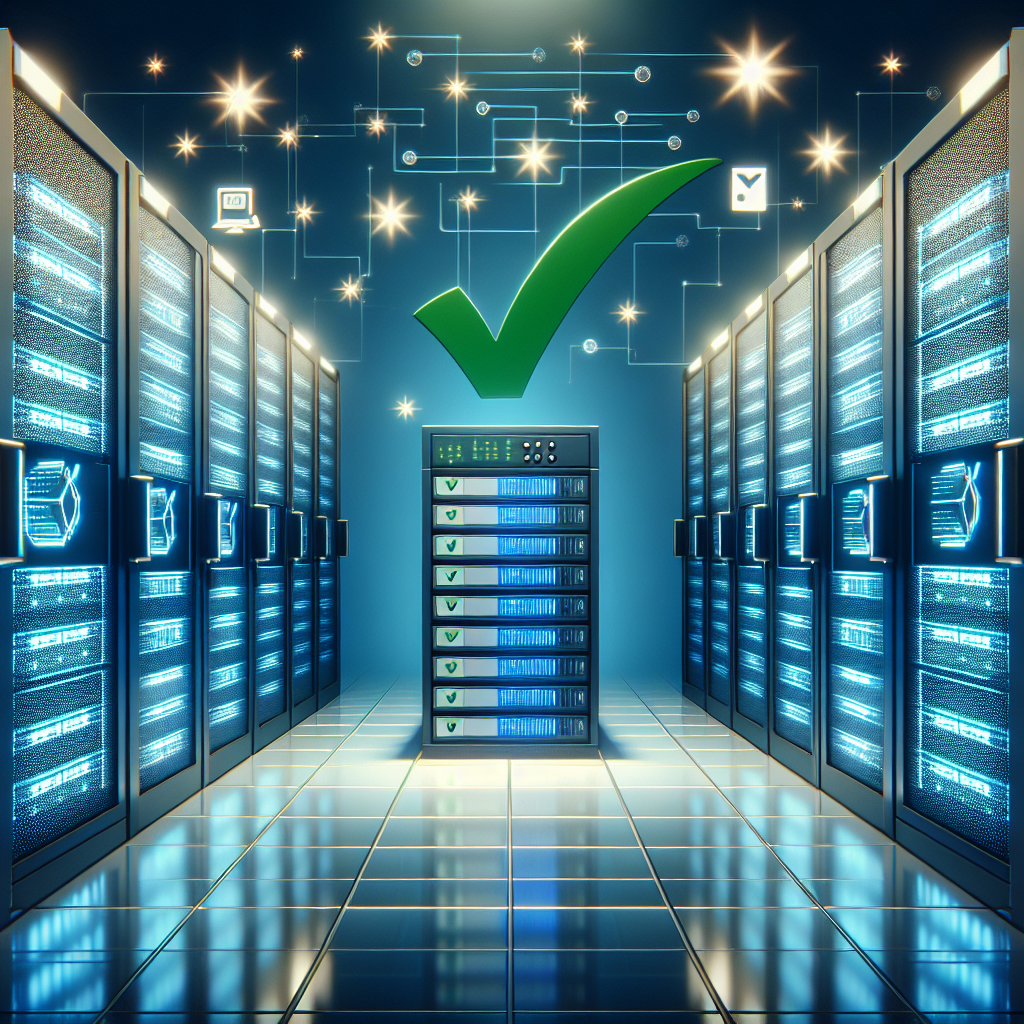
How Data Center Compliance Benefits Your Organization’s Reputation and Trustworthiness
In today’s digital age, data privacy and security have become paramount concerns for organizations of all sizes. As cyber threats continue to evolve and become more sophisticated, it is essential for businesses to prioritize compliance with data center regulations and standards to protect sensitive information and maintain trust with customers.Data center compliance refers to adhering to a set of rules and regulations that govern the storage, processing, and transmission of data. These regulations are designed to ensure that organizations are following best practices to protect data from unauthorized access, breaches, and other security threats.
One of the key benefits of data center compliance is that it helps to enhance your organization’s reputation and trustworthiness. By demonstrating a commitment to protecting sensitive information and complying with industry standards, you can build trust with customers, partners, and other stakeholders.
When customers know that their data is being handled in a secure and compliant manner, they are more likely to trust your organization with their information. This can lead to increased customer loyalty, repeat business, and positive word-of-mouth recommendations.
In addition, compliance with data center regulations can also help to mitigate the risk of data breaches and other security incidents. By implementing robust security measures and protocols, organizations can reduce the likelihood of unauthorized access to sensitive data, which can have serious consequences for both the organization and its customers.
Furthermore, data center compliance can also help organizations to avoid costly fines and penalties for non-compliance with regulations such as the General Data Protection Regulation (GDPR) or the Health Insurance Portability and Accountability Act (HIPAA). By staying up-to-date with the latest regulatory requirements and ensuring compliance with industry standards, organizations can avoid legal consequences and reputational damage.
Overall, data center compliance is essential for organizations looking to protect sensitive information, build trust with customers, and maintain a strong reputation in the marketplace. By prioritizing compliance and implementing robust security measures, organizations can demonstrate their commitment to data privacy and security, which can ultimately lead to increased trust and confidence from stakeholders.

Compliance Challenges and Solutions for Data Centers in the Age of Big Data
In today’s digital age, data centers play a crucial role in storing and processing vast amounts of data generated by businesses, organizations, and individuals. With the rise of Big Data, data centers face an increasing number of compliance challenges that must be addressed to ensure data security, privacy, and regulatory compliance.Compliance challenges for data centers in the age of Big Data can include meeting the requirements of data protection laws such as the General Data Protection Regulation (GDPR), the Health Insurance Portability and Accountability Act (HIPAA), and the Payment Card Industry Data Security Standard (PCI DSS). In addition, data centers must also comply with industry-specific regulations and standards, as well as internal policies and procedures.
One of the key compliance challenges for data centers is ensuring the security of sensitive data stored and processed within their facilities. With cyber threats on the rise, data centers must implement robust security measures to protect data from unauthorized access, theft, and tampering. This can include encryption, firewalls, intrusion detection systems, and access controls to restrict and monitor access to sensitive data.
Another compliance challenge for data centers is ensuring data privacy and confidentiality. With the increasing amount of personal and sensitive information being stored and processed in data centers, it is essential to implement data privacy policies and procedures to safeguard the privacy of individuals’ data. This can include data anonymization, data masking, and data encryption to protect sensitive information from unauthorized disclosure.
Compliance challenges for data centers also include ensuring data availability and integrity. Data centers must implement backup and disaster recovery solutions to ensure data availability in the event of system failures, natural disasters, or cyber attacks. In addition, data centers must implement data validation and integrity checks to ensure the accuracy and reliability of data stored and processed within their facilities.
To address these compliance challenges, data centers can implement a number of solutions and best practices. This can include conducting regular security audits and assessments to identify and address security vulnerabilities, implementing data encryption to protect sensitive data, and implementing access controls to restrict and monitor access to data. Data centers can also implement data privacy policies and procedures to safeguard the privacy of individuals’ data, as well as backup and disaster recovery solutions to ensure data availability and integrity.
In conclusion, compliance challenges for data centers in the age of Big Data are complex and multifaceted. Data centers must implement robust security measures, data privacy policies, and backup solutions to ensure data security, privacy, and regulatory compliance. By addressing these challenges proactively and implementing best practices, data centers can mitigate risks and ensure the integrity and availability of data stored and processed within their facilities.

The Role of Data Center Compliance in Ensuring Business Continuity and Disaster Recovery
In today’s digital age, data centers play a crucial role in ensuring the smooth operation of businesses. They house the critical information and applications that organizations rely on to carry out their daily operations. However, with the increasing threat of cyber-attacks, natural disasters, and other unforeseen events, it has become more important than ever for data centers to comply with industry regulations and standards to ensure business continuity and disaster recovery.Data center compliance refers to the adherence to various regulations and standards set forth by industry bodies and government agencies to protect the security, availability, and integrity of data. These regulations often include guidelines on data storage, access controls, data encryption, and disaster recovery planning.
Compliance with these regulations is essential for businesses to mitigate risks and ensure the continuity of their operations in the event of a disaster. By following these guidelines, data centers can better protect their critical systems and data from potential threats such as cyber-attacks, natural disasters, and equipment failures.
One of the key aspects of data center compliance is disaster recovery planning. In the event of a disaster, such as a cyber-attack or a natural disaster, data centers must have a plan in place to quickly recover and restore operations. This includes having backup systems in place, off-site data storage, and regular testing of disaster recovery procedures to ensure they are effective.
Failure to comply with data center regulations can have serious consequences for businesses. In addition to the potential loss of data and downtime, non-compliance can result in legal penalties, fines, and damage to the organization’s reputation. By adhering to industry regulations and standards, businesses can better protect themselves from these risks and ensure the continuity of their operations.
In conclusion, data center compliance plays a crucial role in ensuring the continuity of business operations and disaster recovery. By following industry regulations and standards, data centers can better protect their critical systems and data from potential threats and ensure the smooth operation of businesses in the event of a disaster. It is essential for organizations to prioritize data center compliance to mitigate risks and safeguard their operations in an increasingly digital world.
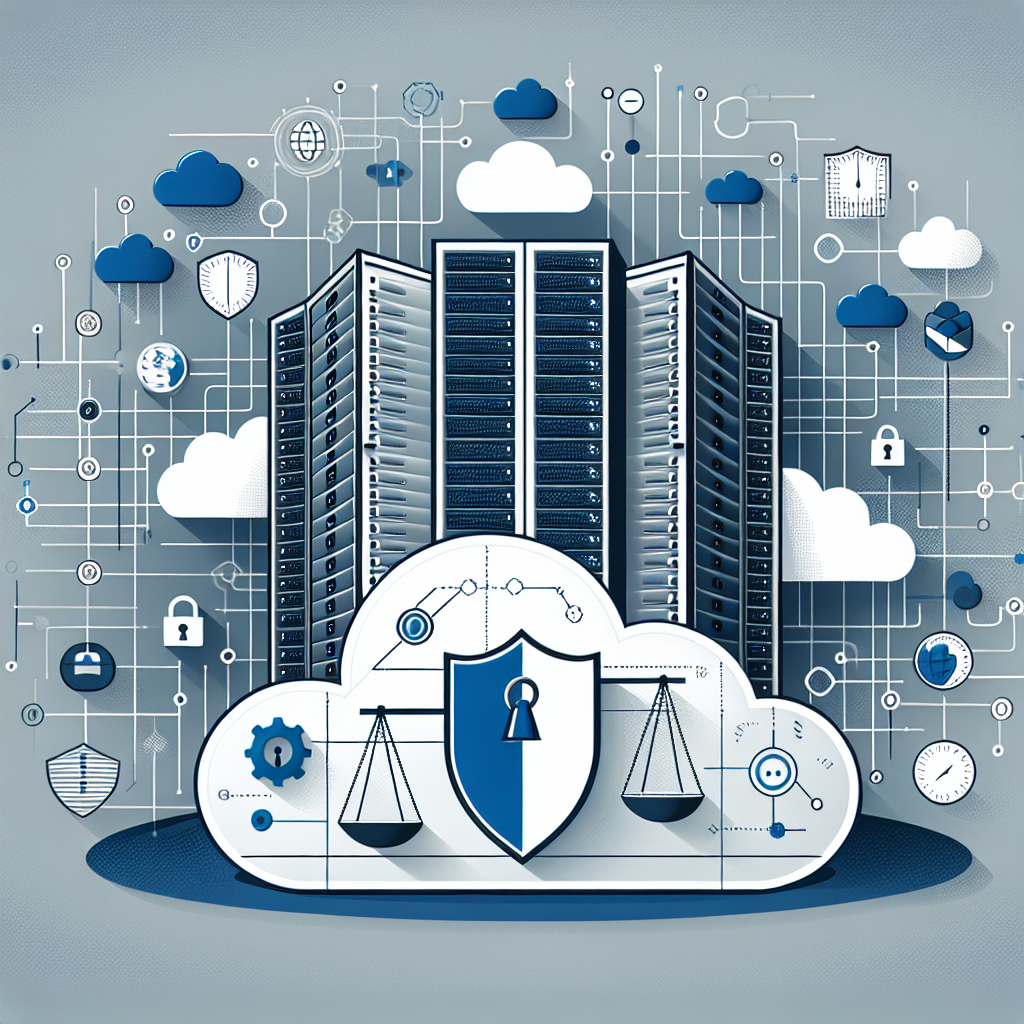
Best Practices for Maintaining Data Center Compliance in a Cloud-Based Environment
In today’s digital age, data centers play a crucial role in storing and managing vast amounts of information for businesses of all sizes. With the rise of cloud computing, many organizations are now opting to move their data centers to the cloud for increased flexibility, scalability, and cost-efficiency. However, maintaining compliance in a cloud-based environment can pose challenges for businesses due to the complex nature of data security and privacy regulations.To ensure that your data center remains compliant in a cloud-based environment, it is essential to implement best practices that prioritize security, privacy, and regulatory compliance. Here are some tips to help you maintain data center compliance in a cloud-based environment:
1. Understand Data Protection Regulations: One of the most critical aspects of maintaining compliance in a cloud-based environment is understanding the data protection regulations that apply to your organization. Regulations such as the General Data Protection Regulation (GDPR) and the Health Insurance Portability and Accountability Act (HIPAA) impose strict requirements on how organizations handle and protect sensitive data. By familiarizing yourself with these regulations and ensuring that your data center operations align with their requirements, you can reduce the risk of non-compliance.
2. Implement Data Encryption: Data encryption is a crucial security measure that helps protect sensitive information from unauthorized access. By encrypting data both in transit and at rest, you can ensure that even if a data breach occurs, the stolen data remains unreadable to hackers. Cloud service providers typically offer encryption features that you can leverage to secure your data center operations.
3. Conduct Regular Audits and Assessments: Regular audits and assessments of your data center’s security practices can help you identify potential compliance gaps and vulnerabilities. By conducting thorough security audits and assessments, you can proactively address any issues before they lead to compliance violations.
4. Implement Access Controls: Access controls are essential for ensuring that only authorized personnel have access to sensitive data. By implementing robust access controls, you can limit the risk of data breaches and unauthorized access to your data center. Role-based access controls, multi-factor authentication, and regular access reviews are some best practices for implementing access controls in a cloud-based environment.
5. Train Employees on Data Security Best Practices: Employee training is critical for maintaining data center compliance in a cloud-based environment. By educating your employees on data security best practices, you can help them understand the importance of compliance and empower them to follow secure data handling procedures. Regular training sessions and awareness campaigns can go a long way in fostering a culture of data security within your organization.
In conclusion, maintaining data center compliance in a cloud-based environment requires a proactive approach that prioritizes security, privacy, and regulatory compliance. By implementing best practices such as understanding data protection regulations, implementing data encryption, conducting regular audits and assessments, implementing access controls, and training employees on data security best practices, you can ensure that your data center remains compliant and secure in the cloud. Remember, compliance is an ongoing process that requires continuous monitoring and adaptation to evolving regulatory requirements. By staying vigilant and proactive, you can protect your organization’s sensitive data and maintain compliance in a cloud-based environment.
